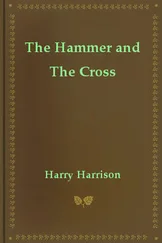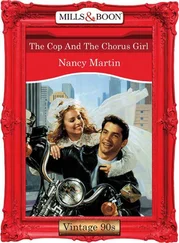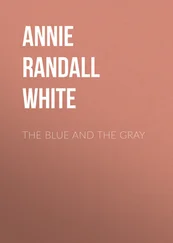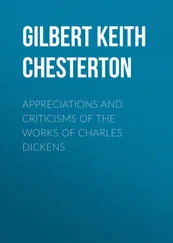Gilbert Chesterton - The Ball and the Cross
Здесь есть возможность читать онлайн «Gilbert Chesterton - The Ball and the Cross» весь текст электронной книги совершенно бесплатно (целиком полную версию без сокращений). В некоторых случаях можно слушать аудио, скачать через торрент в формате fb2 и присутствует краткое содержание. Жанр: Классическая проза, на английском языке. Описание произведения, (предисловие) а так же отзывы посетителей доступны на портале библиотеки ЛибКат.
- Название:The Ball and the Cross
- Автор:
- Жанр:
- Год:неизвестен
- ISBN:нет данных
- Рейтинг книги:5 / 5. Голосов: 1
-
Избранное:Добавить в избранное
- Отзывы:
-
Ваша оценка:
- 100
- 1
- 2
- 3
- 4
- 5
The Ball and the Cross: краткое содержание, описание и аннотация
Предлагаем к чтению аннотацию, описание, краткое содержание или предисловие (зависит от того, что написал сам автор книги «The Ball and the Cross»). Если вы не нашли необходимую информацию о книге — напишите в комментариях, мы постараемся отыскать её.
The Ball and the Cross — читать онлайн бесплатно полную книгу (весь текст) целиком
Ниже представлен текст книги, разбитый по страницам. Система сохранения места последней прочитанной страницы, позволяет с удобством читать онлайн бесплатно книгу «The Ball and the Cross», без необходимости каждый раз заново искать на чём Вы остановились. Поставьте закладку, и сможете в любой момент перейти на страницу, на которой закончили чтение.
Интервал:
Закладка:
“Excuse me,” he said; “it was ceremonial. One has to get the taste out of one’s mouth.”
“The taste of what?” asked MacIan.
“I don’t know the exact name for it,” replied Turnbull. “Perhaps it is the South Sea Islands, or it may be Magdalen College.”
There was a long pause, and MacIan also lifted his large limbs off the ground–his eyes particularly dreamy.
“I know what you mean, Turnbull,” he said, “but...I always thought you people agreed with all that.”
“With all that about doing as one likes, and the individual, and Nature loving the strongest, and all the things which that cockroach talked about.”
Turnbull’s big blue-grey eyes stood open with a grave astonishment.
“Do you really mean to say, MacIan,” he said, “that you fancied that we, the Free-thinkers, that Bradlaugh, or Holyoake, or Ingersoll, believe all that dirty, immoral mysticism about Nature? Damn Nature!”
“I supposed you did,” said MacIan calmly. “It seems to me your most conclusive position.”
“And you mean to tell me,” rejoined the other, “that you broke my window, and challenged me to mortal combat, and tied a tradesman up with ropes, and chased an Oxford Fellow across five meadows– all under the impression that I am such an illiterate idiot as to believe in Nature!”
“I supposed you did,” repeated MacIan with his usual mildness; “but I admit that I know little of the details of your belief– or disbelief.”
Turnbull swung round quite suddenly, and set off towards the village.
“Come along,” he cried. “Come down to the village. Come down to the nearest decent inhabitable pub. This is a case for beer.”
“I do not quite follow you,” said the Highlander.
“Yes, you do,” answered Turnbull. “You follow me slap into the inn-parlour. I repeat, this is a case for beer. We must have the whole of this matter out thoroughly before we go a step farther. Do you know that an idea has just struck me of great simplicity and of some cogency. Do not by any means let us drop our intentions of settling our differences with two steel swords. But do you not think that with two pewter pots we might do what we really have never thought of doing yet–discover what our difference is?”
“It never occurred to me before,” answered MacIan with tranquillity. “It is a good suggestion.”
And they set out at an easy swing down the steep road to the village of Grassley-in-the-Hole.
Grassley-in-the-Hole was a rude parallelogram of buildings, with two thoroughfares which might have been called two high streets if it had been possible to call them streets. One of these ways was higher on the slope than the other, the whole parallelogram lying aslant, so to speak, on the side of the hill. The upper of these two roads was decorated with a big public house, a butcher’s shop, a small public house, a sweetstuff shop, a very small public house, and an illegible signpost. The lower of the two roads boasted a horse-pond, a post office, a gentleman’s garden with very high hedges, a microscopically small public house, and two cottages. Where all the people lived who supported all the public houses was in this, as in many other English villages, a silent and smiling mystery. The church lay a little above and beyond the village, with a square grey tower dominating it decisively.
But even the church was scarcely so central and solemn an institution as the large public house, the Valencourt Arms. It was named after some splendid family that had long gone bankrupt, and whose seat was occupied by a man who had invented a hygienic bootjack; but the unfathomable sentimentalism of the English people insisted in regarding the Inn, the seat and the sitter in it, as alike parts of a pure and marmoreal antiquity. And in the Valencourt Arms festivity itself had some solemnity and decorum; and beer was drunk with reverence, as it ought to be. Into the principal parlour of this place entered two strangers, who found themselves, as is always the case in such hostels, the object, not of fluttered curiosity or pert inquiry, but of steady, ceaseless, devouring ocular study. They had long coats down to their heels, and carried under each coat something that looked like a stick. One was tall and dark, the other short and red-haired. They ordered a pot of ale each.
“MacIan,” said Turnbull, lifting his tankard, “the fool who wanted us to be friends made us want to go on fighting. It is only natural that the fool who wanted us to fight should make us friendly. MacIan, your health!”
Dusk was already dropping, the rustics in the tavern were already lurching and lumbering out of it by twos and threes, crying clamorous good nights to a solitary old toper that remained, before MacIan and Turnbull had reached the really important part of their discussion.
MacIan wore an expression of sad bewilderment not uncommon with him. “I am to understand, then,” he said, “that you don’t believe in nature.”
“You may say so in a very special and emphatic sense,” said Turnbull. “I do not believe in nature, just as I do not believe in Odin. She is a myth. It is not merely that I do not believe that nature can guide us. It is that I do not believe that nature exists.”
“Exists?” said MacIan in his monotonous way, settling his pewter pot on the table.
“Yes, in a real sense nature does not exist. I mean that nobody can discover what the original nature of things would have been if things had not interfered with it. The first blade of grass began to tear up the earth and eat it; it was interfering with nature, if there is any nature. The first wild ox began to tear up the grass and eat it; he was interfering with nature, if there is any nature. In the same way,” continued Turnbull, “the human when it asserts its dominance over nature is just as natural as the thing which it destroys.”
“And in the same way,” said MacIan almost dreamily, “the superhuman, the supernatural is just as natural as the nature which it destroys.”
Turnbull took his head out of his pewter pot in some anger.
“The supernatural, of course,” he said, “is quite another thing; the case of the supernatural is simple. The supernatural does not exist.”
“Quite so,” said MacIan in a rather dull voice; “you said the same about the natural. If the natural does not exist the supernatural obviously can’t.” And he yawned a little over his ale.
Turnbull turned for some reason a little red and remarked quickly, “That may be jolly clever, for all I know. But everyone does know that there is a division between the things that as a matter of fact do commonly happen and the things that don’t. Things that break the evident laws of nature–”
“Which does not exist,” put in MacIan sleepily. Turnbull struck the table with a sudden hand.
“Good Lord in heaven!” he cried–
“Who does not exist,” murmured MacIan.
“Good Lord in heaven!” thundered Turnbull, without regarding the interruption. “Do you really mean to sit there and say that you, like anybody else, would not recognize the difference between a natural occurrence and a supernatural one–if there could be such a thing? If I flew up to the ceiling–”
“You would bump your head badly,” cried MacIan, suddenly starting up. “One can’t talk of this kind of thing under a ceiling at all. Come outside! Come outside and ascend into heaven!”
He burst the door open on a blue abyss of evening and they stepped out into it: it was suddenly and strangely cool.
“Turnbull,” said MacIan, “you have said some things so true and some so false that I want to talk; and I will try to talk so that you understand. For at present you do not understand at all. We don’t seem to mean the same things by the same words.”
Читать дальшеИнтервал:
Закладка:
Похожие книги на «The Ball and the Cross»
Представляем Вашему вниманию похожие книги на «The Ball and the Cross» списком для выбора. Мы отобрали схожую по названию и смыслу литературу в надежде предоставить читателям больше вариантов отыскать новые, интересные, ещё непрочитанные произведения.
Обсуждение, отзывы о книге «The Ball and the Cross» и просто собственные мнения читателей. Оставьте ваши комментарии, напишите, что Вы думаете о произведении, его смысле или главных героях. Укажите что конкретно понравилось, а что нет, и почему Вы так считаете.









